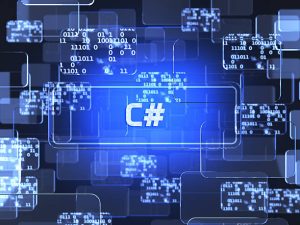Introduction:
C is a powerful and widely used programming language known for its simplicity and efficiency. It has been the foundation for many modern programming languages and remains a popular choice among developers. In this article, we will dive into the fundamentals of C programming language, understanding its key features, syntax, and benefits. Whether you are a beginner or an experienced programmer, this article will provide you with a solid understanding of C and its significance in the world of software development.

1. What is C?
– Brief history and origins of C.
– Relationship between C and other programming languages.
2. Key Features of C:
– Procedural programming paradigm: C follows a procedural programming approach, allowing developers to break down complex problems into smaller, manageable procedures or functions. This makes it easier to write and understand code.
– Low-level memory manipulation: C provides direct access to memory, allowing developers to manipulate data at a low-level. This feature is particularly useful for tasks requiring fine-grained control over memory, such as device drivers and operating systems.
– Portability and efficiency: C programs are highly portable and can be run on different platforms with minimal modifications. Additionally, C’s efficient execution and low-level control make it a preferred choice for resource-constrained environments.
– Extensive library support: C has a vast collection of libraries, providing developers with ready-to-use functions and tools for various tasks. These libraries cover a wide range of domains, including networking, graphics, and cryptography.
3. Syntax and Basic Concepts:
– Data types and variables: C supports various data types, including integers, floating-point numbers, characters, and arrays. It also allows developers to define their own custom data types using structures and unions.
– Operators and expressions: C provides a comprehensive set of operators for arithmetic, logical, and bitwise operations. Expressions in C can be combined using these operators to perform complex computations.
– Control flow statements: C supports control flow statements like if-else, loops (for, while, do-while), and switch-case. These statements allow developers to control the flow of execution based on certain conditions or criteria.
– Functions and modular programming: C encourages modular programming through functions. Functions in C are reusable code blocks that perform specific tasks. They help in organizing code and promoting code reusability.
4. Pointers and Memory Management:
– Understanding pointers: Pointers are a powerful feature of C, allowing developers to store memory addresses and access data indirectly. They are essential for tasks like dynamic memory allocation, data structures, and efficient manipulation of large datasets.
– Dynamic memory allocation: C provides functions like malloc(), calloc(), and realloc() to dynamically allocate memory during program execution. This allows for efficient memory utilization and flexibility in handling variable-sized data structures.
– Memory management best practices: Proper memory management is crucial in C programming to avoid memory leaks and segmentation faults. Techniques like freeing allocated memory, nullifying pointers, and avoiding dangling pointers should be followed.
5. Input and Output:
– File handling in C: C provides file handling mechanisms, allowing developers to read from and write to files. This enables data persistence and interaction with external resources.
– Standard input/output functions: C provides standard input/output functions like printf() and scanf() for formatted input/output operations. These functions make it easy to interact with the user and display results.
– Error handling and exception handling in C: C has mechanisms to handle errors and exceptions. Proper error checking, error codes, and exception handling techniques like try-catch can be implemented in C programs.
6. C Programming Best Practices:
– Coding conventions and style guidelines: Following coding conventions and style guidelines make code more readable and maintainable. Indentation, naming conventions, and proper commenting are some best practices to adhere to.
– Debugging techniques and tools: C provides debugging features like printf statements and breakpoints. Additionally, there are debugging tools like gdb that help in identifying and fixing issues in the code.
– Performance optimization tips: C allows for fine-grained control over memory and execution. Techniques like optimizing loops, minimizing memory usage, and using appropriate data structures can significantly improve performance.
7. Application Domains of C:
– System programming and operating systems: C is widely used for system programming tasks like writing device drivers, operating systems, and kernels. Its low-level access to hardware and memory, along with efficient execution, make it suitable for such applications.
– Embedded systems and microcontrollers: C is the language of choice for programming embedded systems and microcontrollers. Its efficiency and control over hardware allow developers to create compact and responsive firmware for devices like IoT devices, robotics, and automotive systems.
8. Game Development with C:
– 2D and 3D game development: C is widely used for developing both 2D and 3D games. With libraries like SDL, Allegro, or Unity’s C# scripting, developers can create engaging games with captivating visuals and immersive gameplay.
– Game engines and frameworks: Many game engines and frameworks, such as Unreal Engine and Unity, provide support for C programming, enabling developers to build complex and feature-rich games.
– Mobile game development: C can be utilized in mobile game development for platforms like Android and iOS, leveraging frameworks like Cocos2d-x or Unity to create high-performance games for smartphones and tablets.
Conclusion:
C programming language is a powerful tool for game developers, offering a balance between performance, flexibility, and control. Understanding the fundamentals
